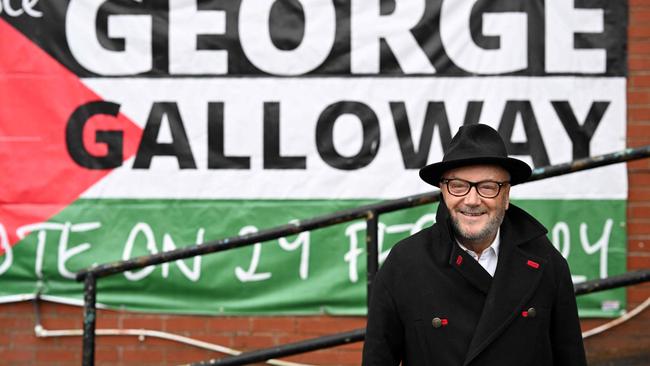
With the flaws in British multiculturalism on devastating display, Prime Minister Rishi Sunak warns that British democracy is under assault; while in the US, anti-Israel sentiment is a risk to President Joe Biden’s re-election.
There are threats to the safety of British MPs at work and in their homes. Sunak has called the by-election victory of sectarian provocateur George Galloway “beyond alarming”, with the latter’s campaign against the Gaza war fanning religious prejudice and Muslim hostility towards Israel – but more important is Sunak’s belated pivot calling for a tougher approach by the organs of the state to pro-Palestinian and far-right extremism.
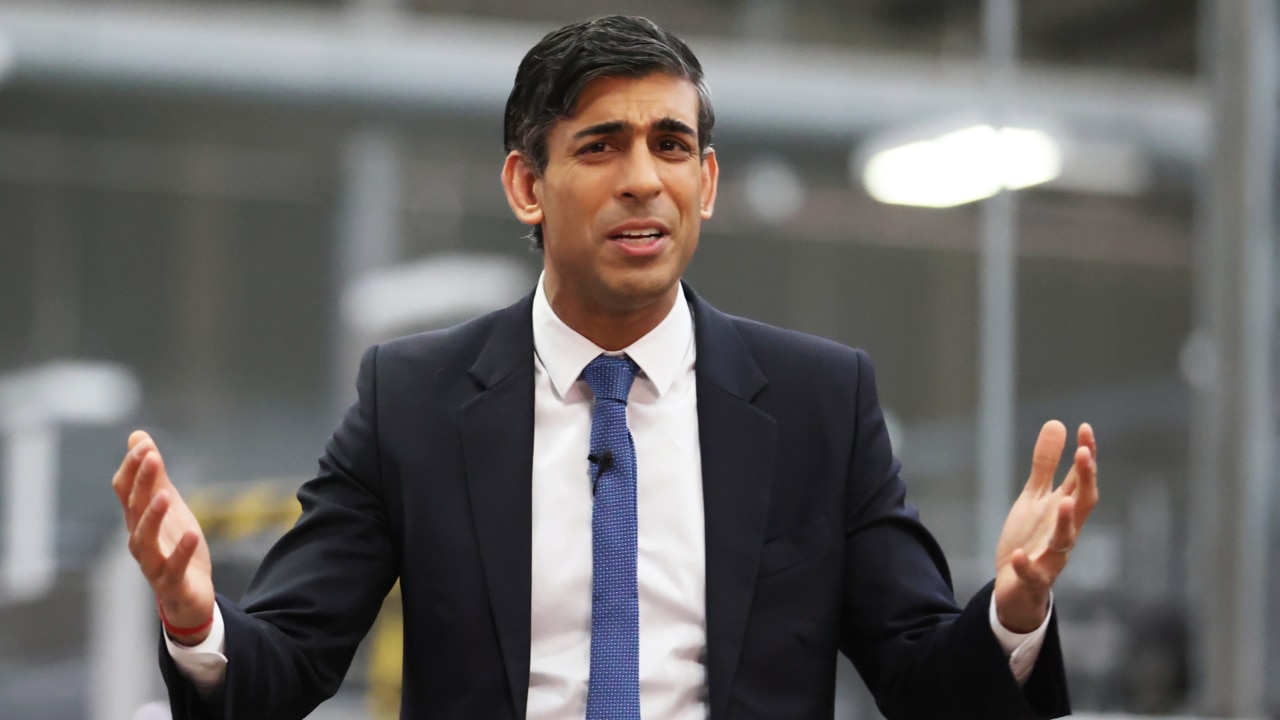
Meanwhile Biden, while winning the Michigan Democratic primary, faced a Muslim-inspired protest that racked up 13 per cent or 100,000 uncommitted Democratic voters, enough to make a decisive difference against him in a swing state.
The Israeli-Hamas war is intensifying religious and cultural conflict across the Western democracies with ominous consequences for Israel and local Jewish communities.
House of Commons Speaker Lindsay Hoyle broke with parliamentary convention on a motion over the war but justified his action by invoking MPs’ safety. “I never want to go through a situation where I find a friend from any side has been murdered,” Hoyle said. “I also don’t want another attack on this house.”
This is British democracy – with MPs at risk and the Speaker changing parliamentary procedures in the teeth of threats and intimidation.
Politico reported that MPs across the political spectrum say the threats they face are getting worse. It quoted an aide to a Tory MP saying that once MPs were treated as “respected community figures” but “all that is gone”. They are now frequent targets.
Speaking outside Downing Street last Friday, Sunak took the UK crisis on to another plateau.
“What started as protests on our streets has descended into intimidation, threats and planned acts of violence,” the British Prime Minister said. “I fear that our great achievement in building the world’s most successful multiethnic, multi-faith democracy is being deliberately undermined. There are forces here at home trying to tear us apart.”
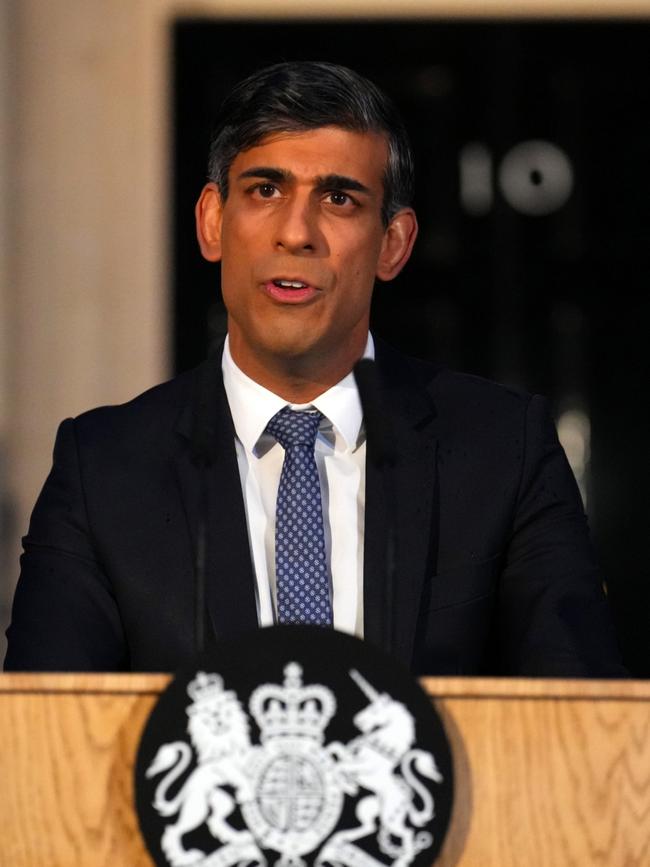
While Sunak was careful to attribute blame to both “Islamist extremists and far-right groups”, his main concern was obvious – that the campaign by pro-Palestinian groups has spilt into support for a Hamas as a terrorist organisation, demands for the liquidation of the Israeli state, an unacceptable anti-Semitism and the risk of serious violence.
Sunak spoke to the protesters. “We must draw a line,” he said. “Yes, you can march and protest with passion. You can demand the protection of civilian life. But no, you cannot call for violent jihad. There is no ‘context’ in which it can be acceptable to beam anti-Semitic tropes on to Big Ben in the middle of a vote on Israel-Gaza. And there can be no cause you can use to justify the support of a proscribed terrorist group like Hamas.
“Yes, you can freely criticise the actions of this government, or indeed any government: that is a fundamental democratic right. But no, you cannot use that as an excuse to call for the eradication of a state – or any kind of hatred or anti-Semitism.”
It is obvious the situation in Britain is far more dangerous than that in Australia. Yet the precise behaviour that Sunak condemns has been on display in Australia with multiple examples since October 7 without any forthright condemnation of its specifics from our national government.
Sunak’s appeal – “don’t let the extremists hijack your marches” – has been met mainly with contempt. The Guardian reported that Palestine Solidarity Campaign director Ben Jamal suggested the British Prime Minister “look in the mirror” and expel some senior MPs from his party.
In a by-election last month in Rochdale, North West England, caused by the death of a Labour MP, the Labour Party withdrew support for its candidate, Azhar Ali, over comments seen to be anti-Semitic, with Galloway then scoring an easy win with 40 per cent of the vote in a heavily Muslim seat. Galloway attacked Labour for “enabling, encouraging and covering for the catastrophe” in Gaza and attacked Sunak saying he exploited Muslims as a “whipping boy”.
Sunak has been criticised for waiting so long to deliver his turning point speech last Friday. It came before an Ipsos poll showing the Tory vote at 20 per cent, compared with Labour at 47 per cent, amid the prospect of the worst Tory defeat in a century at the general election.
As for Labour leader Keir Starmer, he has been under sustained internal assault for not being more condemning of Israel.

Hoyle subsequently apologised for his decision when the Scottish National Party moved a motion on Gaza designed to show up Labour and, as Speaker, he effectively let Labour off the hook, his justification being he was worried about the safety of MPs given the vote. This is astonishing evidence of the alarming state of the British parliament. A few days later Sunak warned that democracy itself was a target of political extremism and violence.
Two MPs have been murdered in the past eight years. After his office was the target of a suspected arson attack, a pro-Israel Tory MP recently announced his retirement, in part because of intimidation. The Financial Times reports MPs are offered stab vests and extra security. Their homes and constituency offices are targets. But such intimidation doesn’t occur in isolation and reflects a wider social trend.
Pro-Palestinian protests have intensified with Gaza’s Health Ministry now saying there are more than 30,000 Palestinian deaths, while Sunak’s government is beleaguered by forces beyond its control. In his speech Sunak made clear he was dissatisfied with the approach of the British police.
“I respect that the police have a tough job,” he said. He acknowledged their operational independence. But Sunak issued a strong corrective instruction, saying: “This week I have met with senior police officers and made clear it is the public’s expectation that they will not merely manage these protests but police them. And I say this to the police, we will back you when you take action. But if we are asking more of the police, we in government must also back up that call with action.”

Sunak said extremist organisations and individuals “cannot be part of our civic life if your agenda is to tear it down”. This principle is essential for a successful multicultural society. But it has not been enunciated as an operating principle in Australia today. No governing leader in Australia has said anything like this.
The attitude of state police in Australia has been pretty much exactly along the lines of Sunak’s criticism – they have sought to “manage” the demonstrations and they have almost entirely ignored the support for Hamas, the anti-Semitism, fanning of hatred and demands to extinguish Jews from the region made by many people including Islamic religious leaders. Many Australians ask: “When will something be done by authorities to stop this?”
Sunak now says the government will demand that universities “stop extremist activity on campus”. It will remove people on visas who “spew hate” and deny entry to others. Strong words – but hard to implement.
Despite his poll ratings, Sunak tried to offer moral leadership. He repudiated those attacking Britain’s history, those who said Britain and the West “is solely responsible for the world’s ills”, those who told children that Britain “is a racist country”, those weaponising “the evils of anti-Semitism and anti-Muslim hatred for their own ends”. Fine words, but far too late. The sentiments and dangers on display are the pent-up product of many years of false dreams, failed policies and leadership misjudgements. And are Australian leaders taking the slightest notice of Britain’s plight?



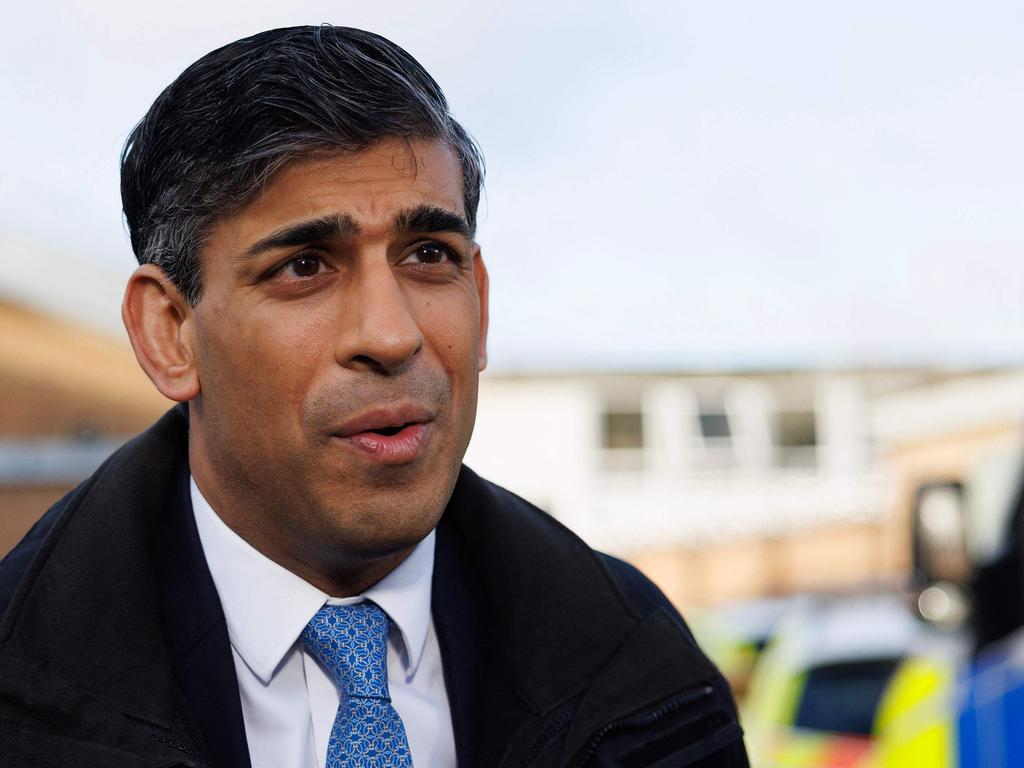
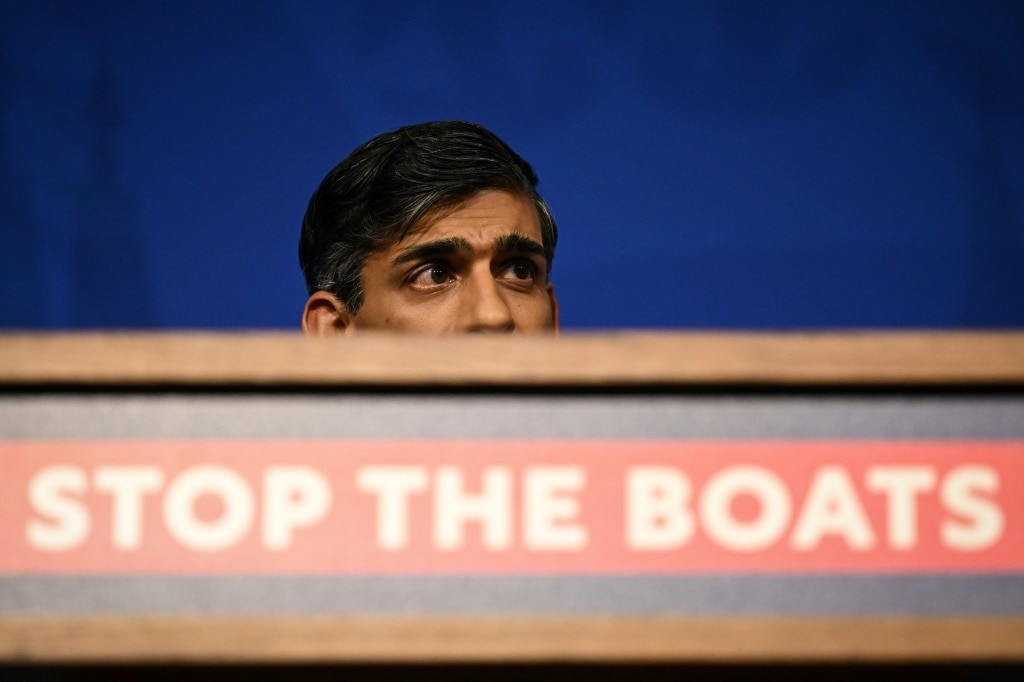



The Middle East conflict is now dividing Britain and the US on racial and religious lines.